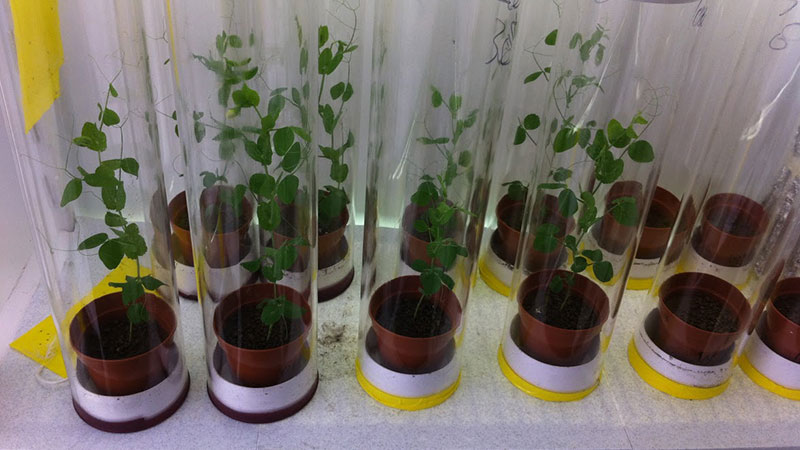Published:

Plants offset their alcohol output by attracting methanol-munching bacteria onto their roots, a new study shows.
Scientists have known for some time that plants are the planet’s largest source of methanol, an alcohol that is highly abundant in the atmosphere.
However, there is a disparity between the large volumes of methanol that plants produce and how much ends up in the atmosphere.
In the lower part of the atmosphere, methanol leads to the formation of ozone and formaldehyde, which then decreases the number of compounds that regulate greenhouse gases.
Scientists at the Lyell Centre, the Open University and the University of East Anglia say that plants are recruiting microscopic bacteria to their roots to eat the methanol - and they must be getting something in return.
Dr Michael Macey from the Open University said: “We used stable isotope probing to identify who exactly was doing what.
“Soils from wheat and pea plants were incubated with ‘heavy’ methanol, which has the heavier isotope of carbon, C13.
“The bacteria that eat the methanol end up with this label added to their DNA. This DNA is then heavier and can be separated, letting us identify the exact microbes that are taking up the methanol. “
Dr Jennifer Pratscher, an environmental microbiologist at Heriot-Watt’s Lyell Centre, said: “We suspected methylotrophs, which are small, quite common 1-4 micrometre bacteria, were behind the disappearing methanol.
“We used genetic probes to find out how abundant they were in the soil around plants’ roots, how many different types of them showed up and how they consumed the plant-produced methanol.”
“Wheat and pea plants have a huge impact on the number and diversity of methylotrophs in the soil. Wheat and pea plants both attracted the pink-pigmented genus Methylobacterium, which is found all around the world and even on the International Space Station.
“The pea plants also attracted a large number of members of the family Comamonadaceae.
“This shows that plants mediate methanol concentration in the atmosphere and in the soil by somehow recruiting these tiny bacteria.”
Dr Pratscher says the research, which comes during the International Year of Plant Health, is another step towards understanding how plants help regulate the environment.
“Methylotrophs have been quietly preventing vast quantities of methanol entering the atmosphere, and now that we know their role there are lots more questions. Future research could look at different soils and use different plants to find out more. We used soil from the UK, what would soil from elsewhere reveal?
“The other interesting question is what are plants getting out of this?
“Methanol is an important signalling molecule for plants - the presence of methylotrophs must somehow work in their favour, for example by providing vitamins or nitrogen for the plant.”
Dr Macey, Dr Pratscher and their team used soil from Church Farm in Bawburgh, Norwich (UK), and carried out their experiments over a four-week period.
Dr Pratscher is based at the Lyell Centre, a strategic partnership between Heriot-Watt University and the British Geological Survey, funded by the Natural Environment Research Council (NERC), the Scottish Funding Council and Heriot-Watt University.
The research was published in the journal Microbiome.
By Sarah McDaid
Media Office
E: sarah@mcdaidpr.co.uk